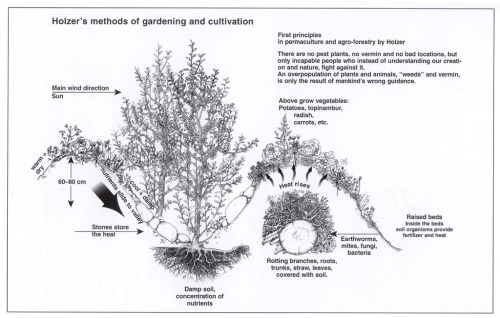Hügelkultur (German, meaning “hill culture” or “mound culture”) is the garde
Hügelkultur (German, meaning “hill culture” or “mound culture”) is the garden concept of building raised beds over decaying wood piles. Decayed timbers become porous and retain moisture while releasing nutrients into the soil that, in turn, promote root growth in plant materials. As the logs decay, they expand and contract, creating air pockets that assist in aerating the soil, allowing roots to easily penetrate the soil. This decaying environment creates a beneficial home to earthworms. As the worms burrow into the soil, they loosen the soil and deposit nutrient-rich worm castings, beneficial to plants. An earthworm can produce its weight in castings on a daily basis. The best decayed wood for a Hügelkultur, according to A Growing Culture, comes from alders, applewood, cottonwood, poplar, maple and birch. Use wood products that have been in the process of decay for about a year (using green, or fresh, wood products will rob the soil of necessary nitrogen). Some wood products, like cedar and black walnut, should be avoided because they produce organisms that negatively effect plant growth. Read more at A Growing Culture. -- source link
#permaculture#hugelkultur#sustainability#farming#earth worms#ecology#gardening#organic#organic gardening#worm castings#fertilizer#environment#urban gardens#gardenchat

